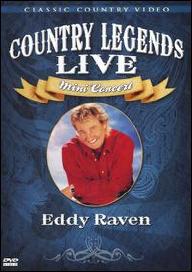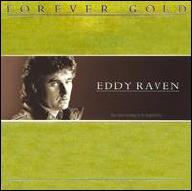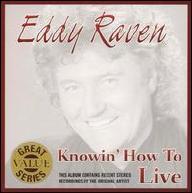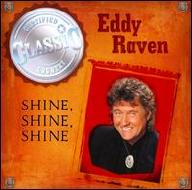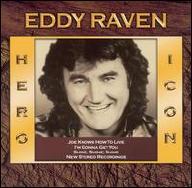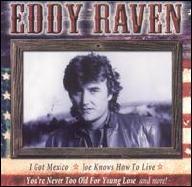Raven began playing music when he was a child in Lafayette, Louisiana, joining a garage rock band when he was 13 years old. Three years later, his family moved to Georgia, where Raven landed a job working in a radio station. He also managed to cut his own song, "Once a Fool," for the local independent label Cosmo. The record was released under the name "Eddy Raven," and Edward Futch used that moniker as his stage name from that day forward. In 1963, the family moved back to Lafayette, and Raven began working in a record shop called La Louisianne. The store's owner had a label of the same name, and Raven cut several records for the label, including his 1969 debut album, That Cajun Country Sound.
Jimmy C. Newman happened to hear That Cajun Country Sound and was impressed enough to land Raven a publishing deal with Acuff-Rose. Following the record's release, Raven began singing for Jimmie Davis' band. By 1971, other artists had begun recording Raven's songs, with Don Gibson taking "Country Green" into the Top Five; Gibson also recorded "Touch the Morning," while Jeannie C. Riley covered "Good Morning, Country Rain" and Roy Acuff sang "Back in the Country." Soon, Raven had gained a reputation as a songwriter and a performer within Nashville, and once Don Gant of Acuff-Rose became an A&R man for ABC Records, Eddy had a record deal of his own in 1974. For the next two years, he had a series of minor hits for the label, highlighted by the number 27 "Good News, Bad News" in 1975. He left the label in 1978, staying with Monument for one year before signing with Dimension the following year. None of his singles for either label were big hits, and he left Dimension in 1981.
Later in 1981, he signed with Elektra, where he had his first big hit with the number 13 "I Should've Called." Over the next two years, Raven had three Top 20 singles for Elektra, setting the stage for his breakthrough into the Top Ten in 1984. After spending 1983 resolving legal and managerial problems, Raven signed with RCA Records, releasing "I Got Mexico" in the spring. The single was a big hit, becoming not only his first Top Ten single, but his first number one hit. For the remainder of the decade, he had a string of Top Ten hits for the label, including the number one singles "Shine, Shine, Shine" (1987), "I'm Gonna Get You" (1988), and "Joe Knows How to Live" (1988). He left RCA for Universal in 1989, and he had two number one singles for the label, "In a Letter to You" and "Bayou Boys." Once Universal collapsed in 1989, he moved to their parent company, Capitol, but his records for the label were largely ignored because radio was beginning to program newer artists instead of veterans like Raven. Right for the Flight, his 1991 album for Capitol, was his last for a major label. Starting in with 1994's Wild Eyed and Crazy, he recorded for independent labels, and over the next decade he cut records relatively steadily -- Cookin' Cajun, a duet album with Jo-El Sonnier, came out in 1996, Living in Black and White appeared in 2001, Knowin' How to Live was released in 2005 -- and he toured into the 2010s. In 2017, he returned to recording with All Grassed Up, a collaboration with Carolina Road. ~ Tom Roland, Rovi


